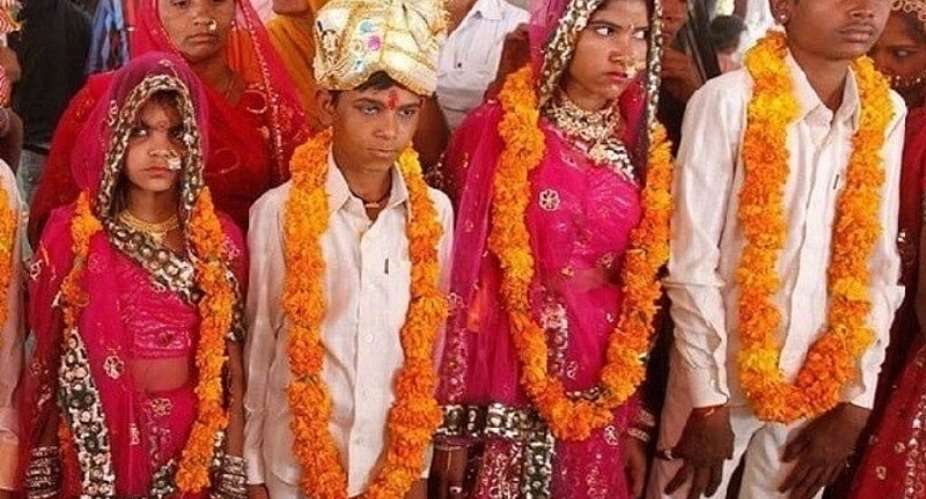Multiple crises brought about by the COVID-19 pandemic have hit underprivileged children in India. Campaigners say it has a lasting impact on children and child rights.
Pramod, 13, is a ragpicker and has been foraging garbage dumps for over three years in the capital. During the pandemic, life has been difficult as he has had to scour for plastic bottles and food wrappers in far-flung sites that have invited turf wars.
Poor children and pandemic
“I got hit along with my other friends when we went out of our territory. But what do we do? We have to eat and bring food to the family.” Pramod told RFI.
Pramod is one of the millions of the street children dependent on begging, vending or helping their families with work and whose lives have been impacted hugely by the pandemic.
In the eastern state of West Bengal, social workers have been racing to stop child marriages in the rural hinterland.
“If you move around in rural parts you might see a spike in cases of child marriage. Covid-19 has left the poor in distress, who are rushing to marry off their minor daughters,” Sutapa Mukherjee, a social worker told RFI.
“Child marriages ruin the lives of girls. They are vulnerable to sexual violence and early pregnancies.”
Campaigners say the twin blows of the lockdown and Cyclone Amphan that struck the state have landed people in abject poverty, making girls more vulnerable to trafficking by way of child marriage.
According to estimates from NGOs over 500 cases of child marriage were reported in West Bengal alone since mid-March when the nationwide lockdown was imposed. In most cases, underage girls were married off by families who lost their earnings due to the shutdown.
“With rising poverty and shrinking resources, it is worrisome and beyond estimation that how many more children will be left uncared for and trafficked into flesh trade or child labor and how many more will be abandoned to state care,” says Leena Prasad of Udayan Care, a trust working with vulnerable children.
There are fears that the situation exacerbated by the COVID-19 pandemic hitting economies of people will drive many families, especially in rural India to marry off their daughters early.
Economic hardships
A report released by the National Commission for Protection of Child Rights recently had found linkages between child marriages and poverty.
“It is evident from the findings that a girl from a poor family is more likely to getting married at a younger age than a girl from a wealthier family,” the report said.
With the lockdown, several basic services for children such as growth monitoring, supplementary nutrition, immunization, sexual and reproductive health services, and education and child protection systems have been disrupted.
The risks were exacerbated by the fact that schools were closed and organizations working to combat child marriage were finding it harder to operate during lockdowns.
Activists point out the pandemic is also making it more difficult for girls to access reproductive health services which could lead to a rise in teenage pregnancies and increased pressure to marry.
A report by the United Nations University says the economic fallout could plunge 395 million people into conditions in which they are forced to live on $1.90 a day or less – the definition of extreme poverty.
A separate World Bank report put that number between 70 million and 100 million people.
India, in particular, will see the largest number of people sinking into ex





 There’s nothing you can do for us; just give us electricity to save our collapsi...
There’s nothing you can do for us; just give us electricity to save our collapsi...
 Ghanaian media failing in watchdog duties — Sulemana Braimah
Ghanaian media failing in watchdog duties — Sulemana Braimah
 On any scale, Mahama can't match Bawumia — NPP Youth Organiser
On any scale, Mahama can't match Bawumia — NPP Youth Organiser
 Never tag me as an NPP pastor; I'm 'pained' the 'Akyem Mafia' are still in charg...
Never tag me as an NPP pastor; I'm 'pained' the 'Akyem Mafia' are still in charg...
 Your refusal to dedicate a project to Atta Mills means you never loved him — Kok...
Your refusal to dedicate a project to Atta Mills means you never loved him — Kok...
 2024 elections: I'm competent, not just a dreamer; vote for me — Alan
2024 elections: I'm competent, not just a dreamer; vote for me — Alan
 2024 elections: Forget NPP, NDC; I've the Holy Spirit backing me and nothing wil...
2024 elections: Forget NPP, NDC; I've the Holy Spirit backing me and nothing wil...
 2024 elections: We've no trust in judiciary; we'll ensure ballots are well secur...
2024 elections: We've no trust in judiciary; we'll ensure ballots are well secur...
 Performance tracker: Fire MCEs, DCEs who document Mahama's projects; they're not...
Performance tracker: Fire MCEs, DCEs who document Mahama's projects; they're not...
 Train crash: Railway ministry shares footage of incident
Train crash: Railway ministry shares footage of incident
